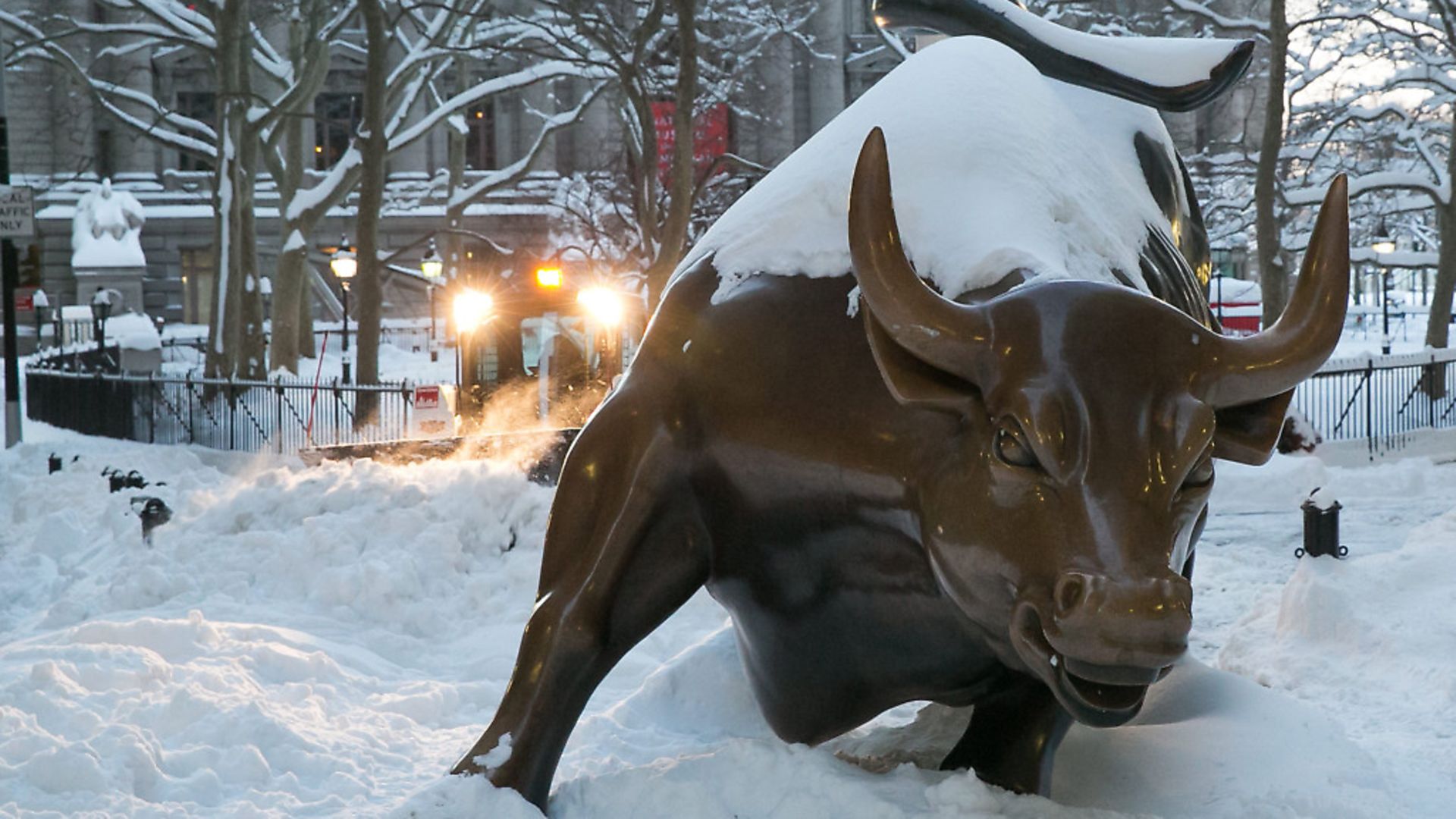
The stock markets are booming but how long can the party last? ANGELA JAMESON investigates mounting worries over how long the bull will run for
Global stock markets have had their best start to a year since 2006, but concerns are mounting that they will blow up, sooner rather than later.
The FTSE 100 hit a record high on its first day of trading in the new year and has kept on climbing, surging past the 7,200 mark.
In the US, the Dow Jones industrial average raced past 25,000 last week. Even the Japanese stock market, for years an under-performer, is at a 26-year high.
Yet some of the best-known companies in the UK have seen spectacular share price falls in the last few months – think Centrica, BT, WPP and, this week, Mothercare. This means that there are stocks out there that look cheap and optimists are continuing to buy. Yet as we enter the tenth year of the US bull market, voices are increasingly asking how long it can go on (The FTSE has not performed anywhere as well, as Europe experienced a double-dip recession).
Willem Buiter, Citigroup’s star economist, this week warned that investors needed to be careful, especially as central banks moved to shut off stimulus measures.
However even Buiter’s caution was tempered. ‘We are reluctant to call an end to the bull market in risk assets just yet but a considerable degree of caution is now warranted,’ Citi says in a note to clients.
Prof Buiter, who used to set UK interest rates and is a professor at the London School of Economics, goes on to say that Donald Trump’s triumphant tax cuts and extra spending comes at exactly the wrong moment in the economic cycle and could led to a boom that forces US interest rate setter, the Fed, to slam on the brakes.
Meanwhile, other usually cautious commentators are still saying that there is money to be made in these markets.
Jeremy Grantham, the usually bearish British veteran investor who co-founded the US giant GMO, says he believes stock markets will ‘melt up’. This curious phrase suggests that stocks will go higher, perhaps as much as 50% higher, before the bubble finally bursts.
Grantham’s rationale is that in the US the ‘extremes of euphoria’ that are usually associated with bubbles are not yet present. He also suggests that the stock market’s climb has been broadly based, with all investors benefiting. In a bubble, typically, there are a small group of winners who streak ahead of the majority of losers.
So should investors think about taking profits now and hunkering down? The trouble is that those who headed for the sidelines two years ago have since missed out on 15% gains for the FTSE 100.
However, there are other warning signs of bubble-like conditions, not least the rise of bitcoin and other cryptocurrencies, in the last few weeks of 2017.
In the UK we now have a company that provides software for takeaways (Just Eat) that is valued higher than Sainsbury’s at £5.5bn. Fevertree, the posh tonic maker, is worth £2.3bn, considerably more than Greene King, the pub company with 3,000 pubs, restaurants and hotels across the country.
However, there haven’t been many companies rushing to float on the markets. The hesitancy over bringing companies to market reflects wider concerns, particularly in the UK, that these are volatile times.
For all the worry about racing markets, European economies are looking fundamentally healthy heading into 2018.
The UK is experiencing more people in work, a recovery in manufacturing and some signs of wage growth. Growth may be below trend, but hardly a disaster.
It is a reasonably good place to be in.
Few people are prepared to put their necks on the line and predict an outright stock market crash. Such events are few and far between historically, so there’s more chance of getting it wrong than right.
The party continues, for now.
Warning: Illegal string offset 'link_id' in /mnt/storage/stage/www/wp-includes/bookmark.php on line 357
Notice: Trying to get property 'link_id' of non-object in /mnt/storage/stage/www/wp-includes/bookmark.php on line 37






